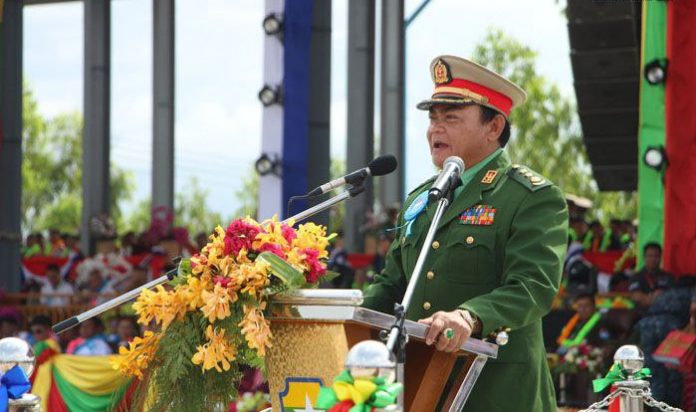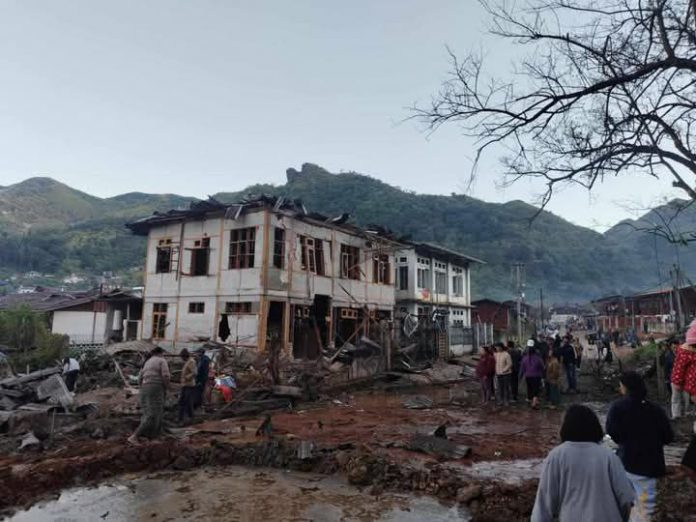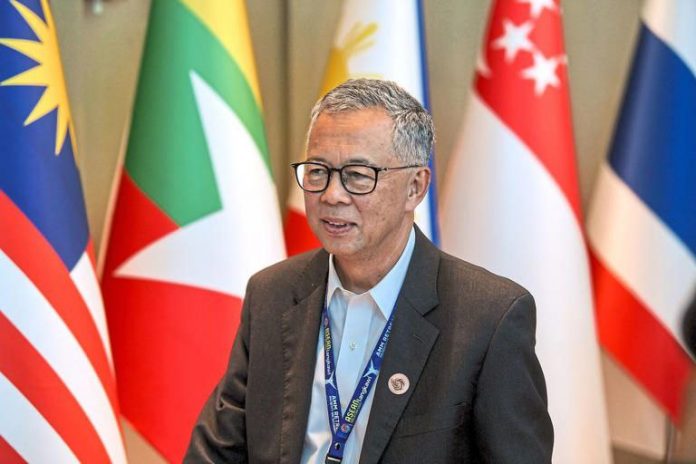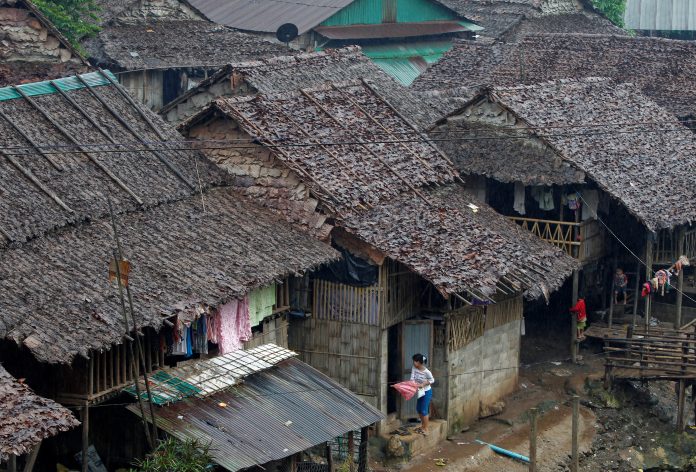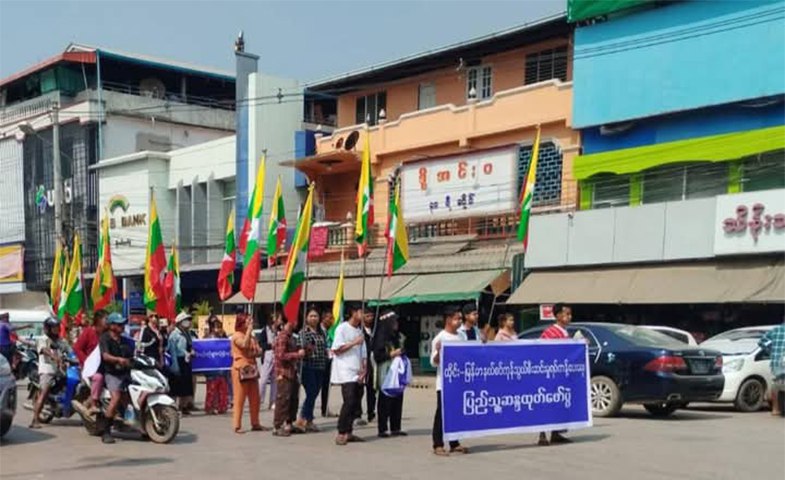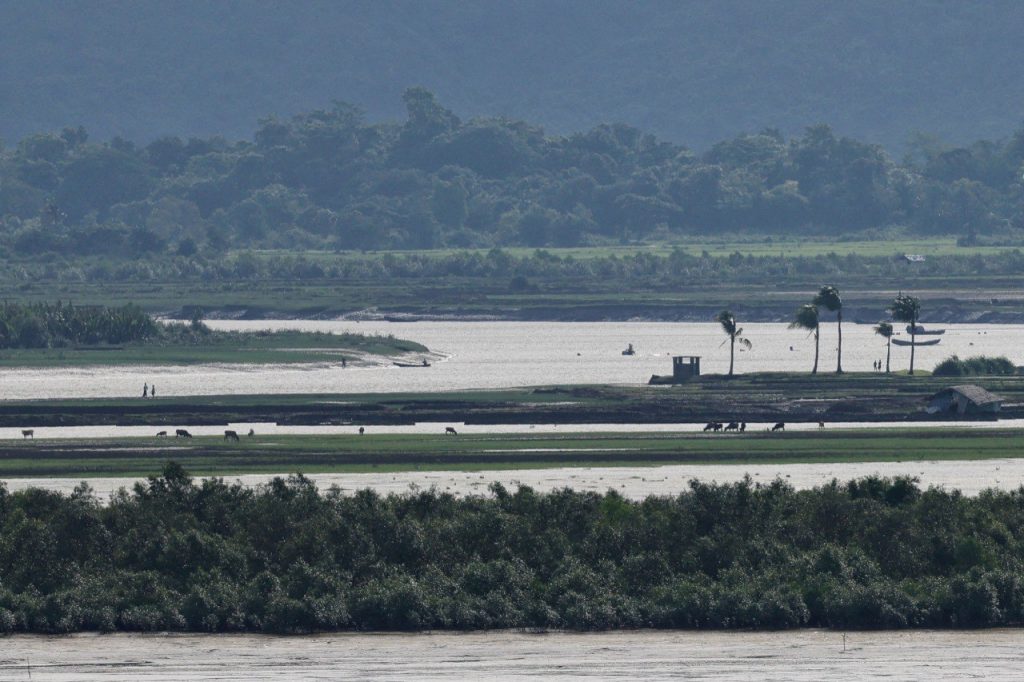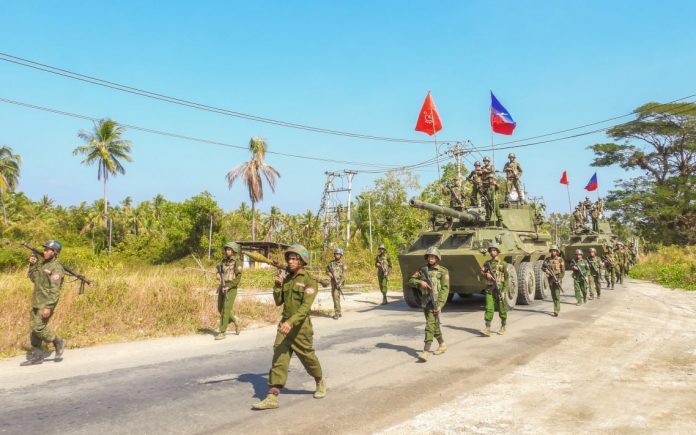Calls for Karen Border Guard Force leader’s arrest
Rangsiman Rome, the chairperson of Thailand’s House Committee on National Security, Border Affairs, National Strategy, and National Reform, called for the arrest of Saw Chit Thu, the leader of the Karen Border Guard Force (BGF), on Sunday. The BGF handed over 61 human trafficking victims from seven countries to Thai authorities on Thursday.
“My sources indicate that Saw Chit Thu holds many secrets about certain government officials in Thailand, as he has allegedly funneled large sums of money as bribes to Thai authorities,” claimed Rome without providing further details. He added that his government must do more to address the issue of transnational crime along the Burma-Thailand border.
Bangkok cut power and fuel imports to Karen State’s Shwe Kokko and Payathonzu, as well as Shan State’s Tachilek last Wednesday. Fuel stations in Myawaddy have limited sales to 30,000 MMK ($6 USD) per customer, as the price of a liter of gasoline rose from 6,000 to 15,000 MMK ($1-3 USD). Drivers queued at the Thai border to be able to purchase fuel in Mae Sot at 30 THB ($1 USD) per liter on Monday.
Report on economic strategy to hit military financing released
The Special Advisory Council for Myanmar (SAC-M), led by three human rights experts on Burma, released a report by Australian economist Sean Turnell on Tuesday. It examines the military’s control over the country’s finances and outlines steps for the international community to help build a fair and prosperous economy for the people of Burma.
“The international community must act on this critical vulnerability by strengthening sanctions against State-owned banks and other institutions the junta relies on to facilitate its global transactions,” said Turnell, who served as the economic advisor to State Counsellor Aung San Suu Kyi’s National League for Democracy (NLD) government from 2015-2020.
Turnell was arrested on Feb. 6, 2021 – five days after the military coup – and was released after 650 days in captivity on Nov. 16, 2022. The SAC-M was established on March 1, 2021 and its stated aims are to cut the military’s access to weapons and finances. It also advocates for ending impunity in Burma by holding the military accountable.
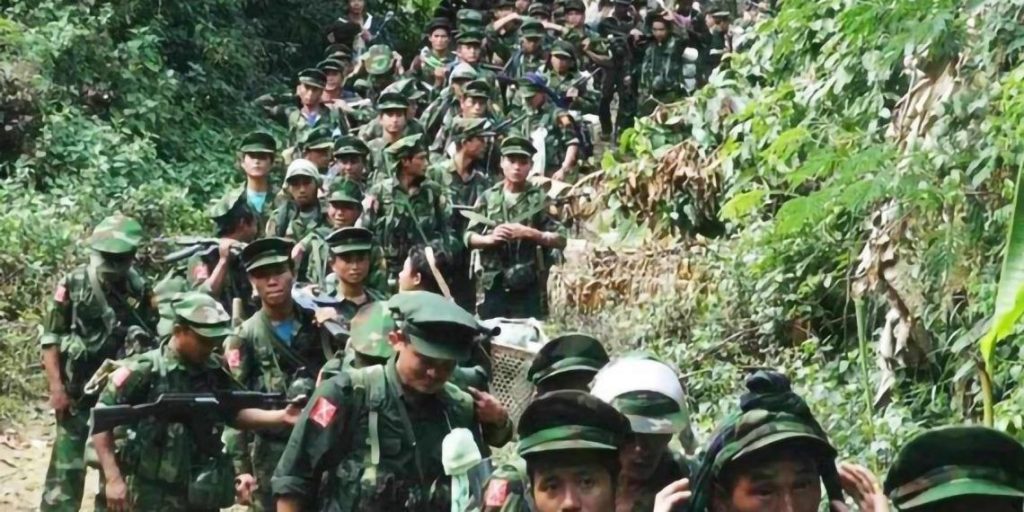
Regime administration collapses in Kachin State’s Bhamo
The Kachin Independence Army (KIA) told DVB on Saturday that the regime administration has ceased in Bhamo Township as fighting with the military continues near Artillery Battalion 366, which was seized by the KIA on Feb. 2. Bhamo, home to the Military Operations Command (MOC) 21, is located 120 miles (193 km) south of the Kachin State capital Myitkyina and 58 miles (93 km) southwest of Laiza, the KIA headquarters.
“We noticed the regime has relied more on drone-, air- and artillery strikes for defence,” Naw Bu, the KIA spokesperson, told DVB. He added that military personnel, including police, have consolidated regime forces at the MOC 21. The KIA, and allied resistance forces, have also seized the Bhamo Airport on Jan. 26, an armored battalion on Jan. 25, and the neighbouring town of Mansi in southern Kachin on Jan. 8.
Mansi is located 17 miles (27 km) south of Bhamo. KIA-led forces control much of Bhamo District except for the MOC 21, Light Infantry Battalions (LIB) 47, 236 and 237, as well as engineering, medical and logistics battalions, which remain under regime control. The KIA launched its offensive against the military in Bhamo and Mansi on Dec. 4.
News by Region
CHINLAND—The Chinland Defense Force-Hakha (CDF-Hakha) claimed that 46 resistance members have been killed and 200 others have been injured in fighting with the military since Feb. 1, 2021. The CDF-Hakha stated that it is planning to seize control of the Chinland capital Hakha this year in a video recorded at an online fundraising event on Feb. 6.
“We will not hesitate to sacrifice our lives in order to seize the town,” said Salai Haramlyan, the CDF-Hakha chairperson. He added that it had participated in over 340 attacks against regime outposts in Chinland and launched more than 140 operations since the 2021 coup. Thantlang, Tedim and Falam, which are located 22-122 miles (35-196 km) to the west and north of Hakha, are under regime control.
MANDALAY—At least three civilians were killed and 20 others were injured by airstrikes carried out by the Burma Air Force on Mogok town on Sunday. Residents told DVB that more than 20 bombs were dropped in seven airstrikes in the western part of Mogok, which is located 124 miles (200 km) north of Mandalay.
“The bombs landed onto the ruby mines. We heard there were problems between ruby miners and someone tipping off the location to the military,” a Mogok resident told DVB on the condition of anonymity. The Ta’ang National Liberation Army (TNLA) seized control of the vital ruby mining hub of Mogok Township, on July 24. Read more.
SHAN—Staff at the regime Ministry of Education in Taunggyi told DVB that they have been informed that they must join a one-month-long military training after this year’s upcoming Thingyan festival, which will be held April 13-16. Taunggyi is the capital of Shan State and is under regime control.
“Everyone is concerned about it even though we don’t know exactly who will receive the training. Some people plan to resign [from their jobs] as they might be sent to the frontline after the training,” a teacher in Taunggyi told DVB on the condition of anonymity. The regime administration told them they would not be sent to the frontline.
TANINTHARYI—Mawtaung Township residents are worried about the rising price of food due to the Tanintharyi-Mawtaung Road closure caused by fighting between resistance forces and the military since Dec. 18. Mawtaung is located 249 miles (400 km) southeast of the regional capital Dawei across the border from Prachuap Khiri Khan Province of Thailand.
“Prices of all goods have gone up. Shops haven’t closed down, but supplies are running low,” a Mawtaung resident told DVB. He added that prior to the road’s closure, the price of a sack of rice was around 500 THB ($14 USD) but is now 800 THB ($23 USD). Residents now solely rely on commodities smuggled in from Thailand.
(Exchange rate: $1 USD = 4,510 MMK)


